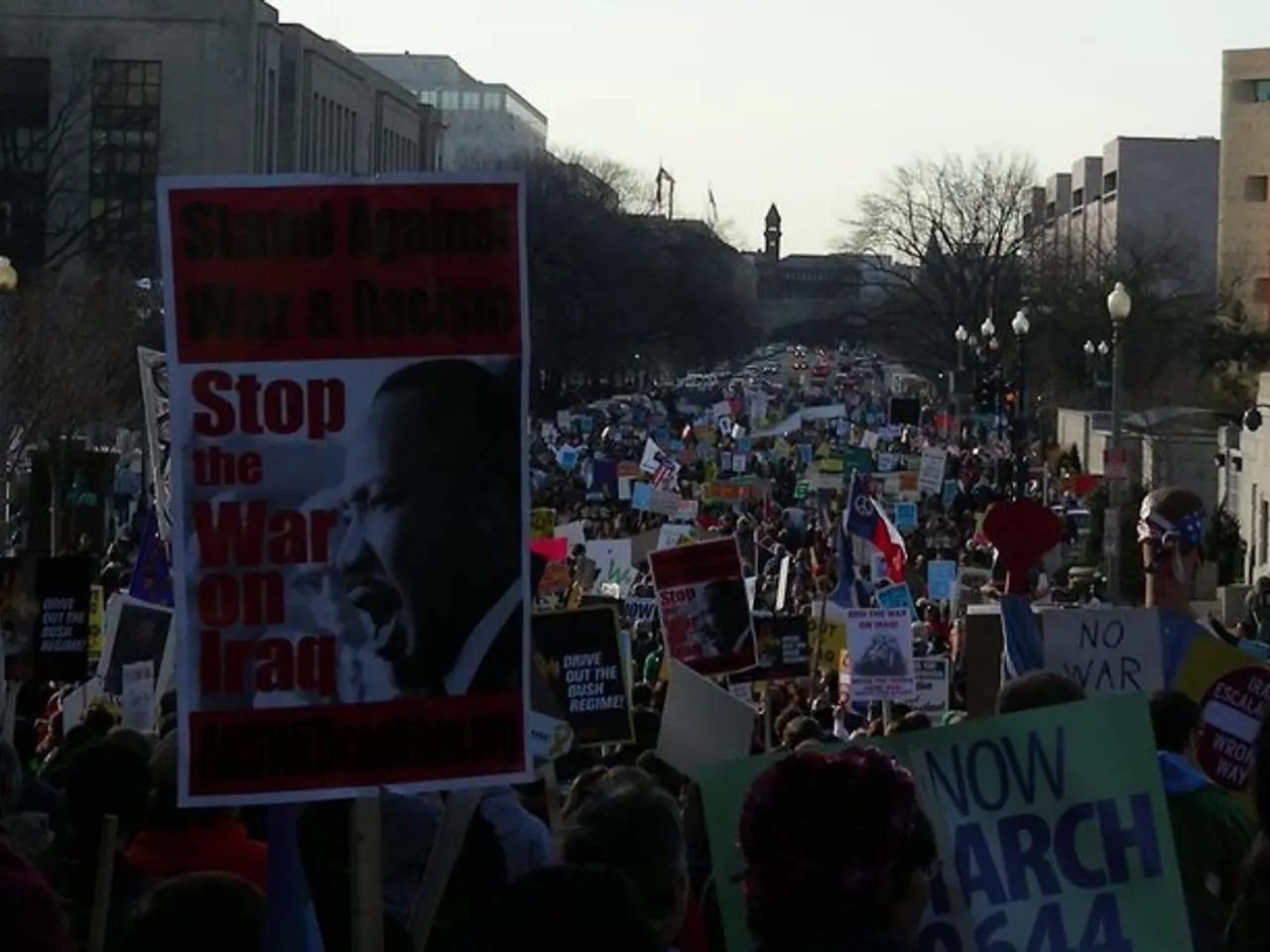Trump promises to categorize antifa as a significant terrorist group
In a recent post on Truth Social, U.S. President Donald Trump announced his intention to designate antifa as a terrorist organization. This decision comes after a series of incidents targeting various groups, including private individuals, religious institutions, and demonstrators, over the past five years.
Since the killing of conservative activist Charlie Kirk, Trump and his allies have ramped up their criticism of what they say are acts of "radical left" violence. The killing of Kirk has raised questions about free speech and political division, and the legal ramifications of Trump's decision are unclear.
It's important to clarify that antifa is not an actual body but a term referring to anti-fascist activists with mostly left-leaning political affiliations. Antifa is not generally thought to be a financially backed, highly organized collective.
Designating an organization a "major terrorist organization" has no impact on "those fundamental rights," as outlined under the First Amendment. No one can be punished for joining a group or giving money to a group, including antifa. However, the federal government does not have a mechanism to formally charge an individual with domestic terrorism, making it difficult to formally characterize someone as a domestic terrorist.
Between 2020 and 2024, terrorist attacks and plots in the U.S. have primarily been directed at government, military, and law enforcement targets. A study published in October 2024 by the Center for Strategic and International Studies (CSIS) found that the number of domestic terrorist attacks and plots against government targets motivated by partisan political beliefs in the past five years is nearly triple the number of such incidents in the previous 25 years combined.
The CSIS report also outlined the federal government's limited ability to punish left-wing activists. A 2023 Congressional Research report titled "Understanding and Conceptualizing Domestic Terrorism: Issues for Congress" further supports this.
In the United States over the past five years, organizations suspected of politically motivated terrorist attacks and plots against government, military, and police targets include white supremacist groups, far-right militias, anarchist groups, and some Islamist extremist cells.
After Kirk's killing, Trump promised to "find each and every one of those who contributed to this atrocity, and to other political violence." The suspect in Kirk's shooting has been charged with aggravated murder, and prosecutors are seeking the death penalty.
Trump also stated that he will be recommending a thorough investigation into those funding antifa. However, it's unclear how or when the designation of antifa as a terrorist organization will occur. Current U.S. rules permit the State Department to list foreign terror organizations, but not domestic ones like antifa.
This announcement has sparked debate and concern about the potential impact on free speech and political dissent. As the situation develops, it's crucial to maintain a clear understanding of the facts and the limitations of such a designation.
Read also:
- United States tariffs pose a threat to India, necessitating the recruitment of adept negotiators or strategists, similar to those who had influenced Trump's decisions.
- Weekly happenings in the German Federal Parliament (Bundestag)
- Southwest region's most popular posts, accompanied by an inquiry:
- Discussion between Putin and Trump in Alaska could potentially overshadow Ukraine's concerns







